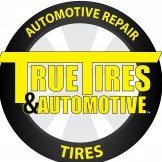UniFirst
-
Available Subscriptions
-
Have you checked out Joe's Latest Blog?
-
By Joe Marconi in Joe's Blog0 commentsIt always amazes me when I hear about a technician who quits one repair shop to go work at another shop for less money. I know you have heard of this too, and you’ve probably asked yourself, “Can this be true? And Why?” The answer rests within the culture of the company. More specifically, the boss, manager, or a toxic work environment literally pushed the technician out the door.
While money and benefits tend to attract people to a company, it won’t keep them there. When a technician begins to look over the fence for greener grass, that is usually a sign that something is wrong within the workplace. It also means that his or her heart is probably already gone. If the issue is not resolved, no amount of money will keep that technician for the long term. The heart is always the first to leave. The last thing that leaves is the technician’s toolbox.
Shop owners: Focus more on employee retention than acquisition. This is not to say that you should not be constantly recruiting. You should. What it does means is that once you hire someone, your job isn’t over, that’s when it begins. Get to know your technicians. Build strong relationships. Have frequent one-on-ones. Engage in meaningful conversation. Find what truly motivates your technicians. You may be surprised that while money is a motivator, it’s usually not the prime motivator.
One last thing; the cost of technician turnover can be financially devastating. It also affects shop morale. Do all you can to create a workplace where technicians feel they are respected, recognized, and know that their work contributes to the overall success of the company. This will lead to improved morale and team spirit. Remember, when you see a technician’s toolbox rolling out of the bay on its way to another shop, the heart was most likely gone long before that.
-
-
Similar Topics
-
By Joe Marconi
Premium Member Content
This content is hidden to guests, one of the benefits of a paid membership. Please login or register to view this content.
-
By carmcapriotto
Podcasting isn’t about having all the answers—it’s about sharing the journey. In this episode, we tackle the hard truth: Podcast hosts don’t have it all figured out. From the insecurities of giving advice to the challenges of staying authentic, we explore what it really means to put yourself out there as a host.
You’ll discover how to sift through advice, find what works for you, and embrace the imperfect process of learning and leading. If you’ve ever felt like you don’t have it all together, this episode will remind you—you’re not alone.
Listen in for an honest discussion about navigating the auto repair industry, embracing authenticity, and growing through the challenges of imperfection!
Thank you to our friends at RepairPal for providing you this episode. RepairPal’s Certified
Network of shops are trusted by millions of customers each month. Learn more at
RepairPal.com/shops
Are you ready to convert clients to members? App fueled specializes in creating custom apps tailored specifically for auto repair businesses. Build client loyalty. Get started today with your own customer loyalty app. Visit Appfueled.com
Lagniappe (Books, Links, Other Podcasts, etc)
https://shopmarketingpros.com/ep-118-doing-video-every-day-for-a-month/ - Episode 118 VEDA
https://agencyanalytics.com/blog/how-profit-first-helped-this-agency-scale - Profit First Was the Key to Our Agency’s Financial Transformation
https://shopmarketingpros.com/ep-125-its-ok-to-dream-big-stop-playing-small/ - It’s OK to Dream Big (Stop Playing Small)
Show Notes with Timestamps
Introduction to the Episode (00:00:01) Brian introduces the podcast and sets the theme about podcast hosts not having all the answers. Inspiration from Mike Allen's Post (00:00:10) Discussion on how Mike Allen's humorous post sparked Brian's reflections on podcasting and advice-giving. Brian's Insecurities as a Host (00:01:15) Brian shares his personal insecurities regarding his role as a podcast host and influencer. Critique of Influencers (00:02:26) Brian expresses frustration with influencers who claim to have life figured out, relating it to his experiences. Sharing Personal Experiences (00:03:33) Emphasis on the importance of sharing personal learning experiences rather than presenting oneself as an expert. Struggles with Advice-Giving (00:04:36) Brian discusses his ongoing struggles with the advice he shares in his podcasts and posts. Imposter Syndrome (00:05:37) Brian reflects on feelings of imposter syndrome when sharing advice on managing expenses and business practices. Going Against Popular Opinion (00:06:46) Brian talks about the challenges of discussing unpopular business opinions and the reactions he receives. Sponsor Promotion: RepairPal (00:08:54) Brian promotes RepairPal and its benefits for auto repair shops seeking new customers. Sponsor Promotion: App Fueled (00:09:55) Introduction of App Fueled and its services for building customer loyalty apps for auto repair businesses. Rewarding Success Stories (00:10:59) Brian shares the rewarding experience of hearing success stories from listeners implementing his advice. Discernment in Advice-Giving (00:12:03) Brian advises listeners to discern the credibility of advice from various influencers and podcasters. Conclusion and Reflection (00:13:10) Brian wraps up the discussion, emphasizing the importance of honesty in sharing experiences and insights.
How To Get In Touch
Group - Auto Repair Marketing Mastermind
Website - shopmarketingpros.com
Facebook - facebook.com/shopmarketingpros
Get the Book - shopmarketingpros.com/book
Instagram - @shopmarketingpros
Questions/Ideas - [email protected]
Click to go to the Podcast on Remarkable Results Radio
-
By Jay Huh
Long story short, been in business about 2 years and started mobile. Current location for about a year, just opened up a second location about 3 weeks ago- HUGE step for me.
In my area, auto shop locations are REALLY REALLY RARE. There'll be months before a single shop will pop up for lease.
Well.. I was looking for auto equipment on craigslist and stumbled upon a listing of a shop moving and selling all his lifts. Found the location on loopnet- 5 bays, previous business extremely successful, great location, great price too....
1st location hit record sales this past week, 2nd new location held its own (divided by week, came out on top after expenses). I got both stores running self sufficiently. I am pretty much maxed out and I hate taking out loans but I have a line of credit available.
Am I crazy to want to do this?
-
By Joe Marconi
Premium Member Content
This content is hidden to guests, one of the benefits of a paid membership. Please login or register to view this content.
-
-
By Changing The Industry
Episode 197 - Used Parts & Bad Practices In Auto Repair With Jeff Compton & Keith Perkins
-
-
-
Our Sponsors


















Recommended Posts
Create an account or sign in to comment
You need to be a member in order to leave a comment
Create an account
Sign up for a new account in our community. It's easy!
Register a new accountSign in
Already have an account? Sign in here.
Sign In Now